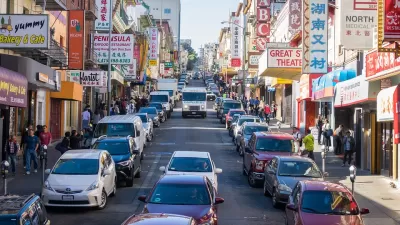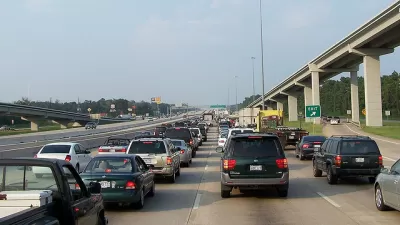Two Atlantic editors investigate why the younger generation is not only driving less but also less likely to purchase homes than their baby boomer parents. Is it temporary, a result of a bad economy, or are these behaviors a permanent shift?
Derek Thompson and Jordan Weissmann, senior and associate editors at The Atlantic, respectively, look at the reduced car-buying, driving, and housing choices of the Millennial generation, and speculate how it will affect the economy in the September, 2012 issue of The Atlantic Magazine.
The auto companies act as if "demand for cars within the Millennial generation is just waiting to be unlocked; that as the economy slowly recovers, today's young people will eventually want to buy cars as much as their parents and grandparents did."
Thompson and Weissmann agree that "the Great Recession is responsible for some of the decline. But it's highly possible that a perfect storm of economic and demographic factors-from high gas prices, to re-urbanization, to stagnating wages, to new technologies enabling a different kind of consumption-has fundamentally changed the game for Millennials."
"When Zipcar was founded in 2000, the average price for a gallon of gasoline was $1.50, and iPhones didn't exist. Since then, it has become the world's largest car-sharing company. Zipcar owes much of its success to two facts. First, gas prices more than doubled, which made car-sharing alluring. Second, smartphones became ubiquitous, which made car-sharing easier."
Next, the editors look at the noticeable urban preferences of the Millennials that involve renting in cities rather than owning in suburbs. That could doom the economic recovery when one considers the importance of housing construction and auto manufacturing in our economy. But the editors offer an alternative outcome.
"Economic research shows that doubling a community's population density tends to increase productivity by anywhere between 6 percent and 28 percent. Ultimately, if the Millennial generation pushes our society toward more sharing and closer living, it may do more than simply change America's consumption culture; it may put America on firmer economic footing for decades to come."
Thanks to Andrew Boone
FULL STORY: The Cheapest Generation: Why Millennials aren’t buying cars or houses, and what that means for the economy

Alabama: Trump Terminates Settlements for Black Communities Harmed By Raw Sewage
Trump deemed the landmark civil rights agreement “illegal DEI and environmental justice policy.”

Study: Maui’s Plan to Convert Vacation Rentals to Long-Term Housing Could Cause Nearly $1 Billion Economic Loss
The plan would reduce visitor accommodation by 25% resulting in 1,900 jobs lost.

Planetizen Federal Action Tracker
A weekly monitor of how Trump’s orders and actions are impacting planners and planning in America.

Wind Energy on the Rise Despite Federal Policy Reversal
The Trump administration is revoking federal support for renewable energy, but demand for new projects continues unabated.

Passengers Flock to Caltrain After Electrification
The new electric trains are running faster and more reliably, leading to strong ridership growth on the Bay Area rail system.

Texas Churches Rally Behind ‘Yes in God’s Back Yard’ Legislation
Religious leaders want the state to reduce zoning regulations to streamline leasing church-owned land to housing developers.
Urban Design for Planners 1: Software Tools
This six-course series explores essential urban design concepts using open source software and equips planners with the tools they need to participate fully in the urban design process.
Planning for Universal Design
Learn the tools for implementing Universal Design in planning regulations.
Caltrans
Smith Gee Studio
Institute for Housing and Urban Development Studies (IHS)
City of Grandview
Harvard GSD Executive Education
Toledo-Lucas County Plan Commissions
Salt Lake City
NYU Wagner Graduate School of Public Service




























